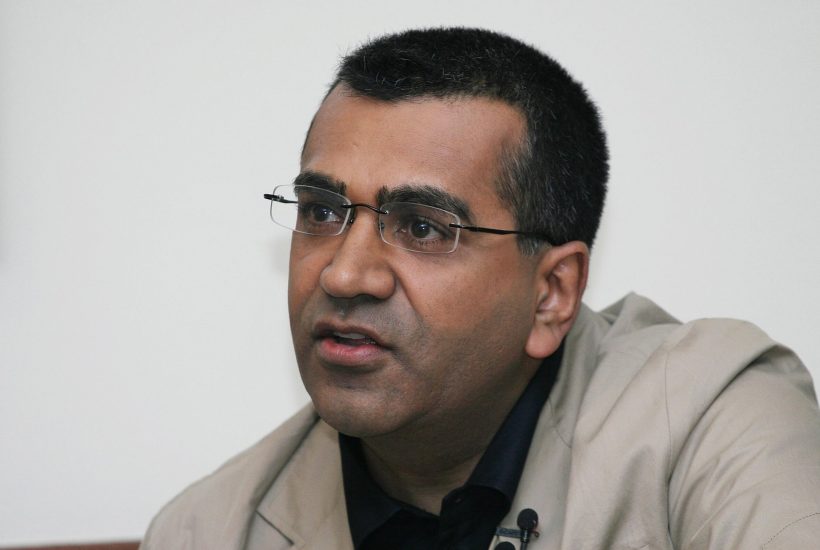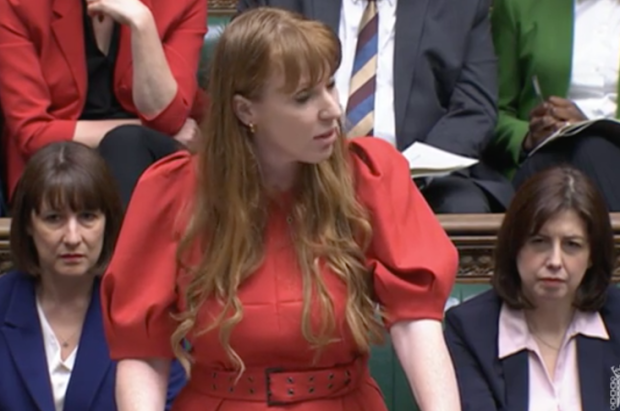As fans of the BBC hit show Line of Duty know very well the ‘one rotten apple’ explanation for police corruption won’t wash. It’s never just the one – corruption flourishes only when it is facilitated by others. The corrupt officer needs others around them; people who will lie for them, cover-up for them, brazenly praise and reward them. This is logical because if the ‘bent copper’ is surrounded only by honest people they will be quickly rumbled; they need others who are dishonest, or morally weak, or who actively collude in their schemes. We know this. We’ve watched the series.
And, as it turns out, it’s much the same story when it comes to corrupt journalists. The devastating report by Lord Dyson into the Martin Bashir interview with Princess Diana was perhaps the worst day in the Corporation’s 100 years, worse in its way than the grisly saga of the pervert Jimmy Savile. At least in the Savile case no BBC executive had concrete evidence of his sexual cruelty. That cannot be said in the Bashir scandal. As the report says, the Panorama editor Steve Hewlett knew, other senior journalists knew, finally the boss of BBC news, Lord Hall knew. They knew he had done wrong and they did nothing about it.
Instead Bashir was feted and promoted, garlanded with industry rewards and launched on a career trajectory that took him to the heights of the profession. As Thursday’s Panorama special reminded us, when Bashir returned to the UK, after his US career fizzled out, he was re-hired as religion editor when Lord Hall was still the BBC’s Director General.
The first words on the BBC’s ‘values’ statement are these: ‘Trust is the foundation of the BBC. We’re independent, impartial and honest.’ A bold and ringing declaration – and one that now rings so very hollow. For a Panorama reporter (the longest-running investigative TV show in the world) to fake financial documents in order to convince a member of the Royal Family to give an interview beggars belief. It is the kind of behaviour one associates with conmen and criminals. For senior BBC editors then to collude in a 25-year cover-up strongly suggests a culture of corporate corruption.
How should we begin to try to understand how this catastrophic episode occurred? Obviously Martin Bashir was deceitful and dishonest; and I think the same must be said of his editor Steve Hewlett – a man who was greatly celebrated by the BBC: when he was dying of oesophageal cancer in 2017 the BBC turned his last weeks into a soap opera with long, nightly, interviews on the PM programme. Had we known then that this supposed paragon of journalistic virtue had told his deputy, ‘I don’t see why this is any of your f— business’, when he raised concerns about the way Bashir had behaved, the celebration might have been more muted.
As for Lord Hall, plain old ‘Tony’ as he then was, what of him? His was a glaring and unforgivable failure of moral courage. After he investigated Bashir in 1996, it would have been tremendously brave of him to announce to the world that the Diana interview was gained under false pretences. That would have taken real cojones; the BBC would have taken flak; but – just imagine – if he had taken that course how it would have looked. The BBC would have shown true journalistic integrity; it would have been a case of ‘we made a mistake, but we’ve owned up and we’re sorry’. Now one wonders if the BBC’s reputation can ever be restored.
At the heart of this journalistic horror story is the person of Diana herself. She was exploited by Bashir and the Panorama team so they could get the glory. Journalism is a cut-throat business but its fiercely competitive nature doesn’t absolve practitioners from the obligation to be decent human beings. Faced with a moral dilemma, it seems that Bashir, Hewlett and Hall all decided getting the big scoop was more important than anything else. That moral blindness has left them looking like self-serving scoundrels.
The tone the BBC adopts is usually one of self-righteous superiority. It never tires of lecturing us – that we are bigoted, racist and uncaring. In its own eyes the BBC is always ‘on the right side’ – and the side it chooses is always the same side; it is the one favoured by progressive academics, human rights lawyers and any of its favoured victim groups. The BBC has an especial disdain for ‘populism’ and reserves its fiercest contempt for tabloid journalism. It gleefully reported the revelations of the Leveson inquiry into phone-hacking and its assiduous coverage of that story was meant to underscore the point: the BBC is different.
That pious self-regard now looks deeply hypocritical and when the BBC next starts prating about climate change, or Black Lives Matter, we will remember the way the BBC lied and obfuscated, for years, about how it got its own famous Diana scoop. This episode showcases worse behaviour even than the tabloids stooped to.
After having worked in the belly of the beast for many years I concluded I did not trust the BBC. It is no use arguing that Bashir was just one ‘rogue’ reporter – the corruption of journalistic ethics went right up to the top. Wholesale, radical and urgent reform of the BBC is now essential if it is to survive. In Line of Duty’s fictional AC-12 it takes outside scrutiny to clean-up the corruption; some new method of overseeing the BBC’s journalism is needed – and fast – if it is ever to recover the trust of the country. A proper oversight board, as suggested by ex director general Michael Grade, might be the answer. As presently constituted the BBC is virtually unaccountable. That has to change if it is to survive.
Got something to add? Join the discussion and comment below.
Get 10 issues for just $10
Subscribe to The Spectator Australia today for the next 10 magazine issues, plus full online access, for just $10.



















Comments
Don't miss out
Join the conversation with other Spectator Australia readers. Subscribe to leave a comment.
SUBSCRIBEAlready a subscriber? Log in